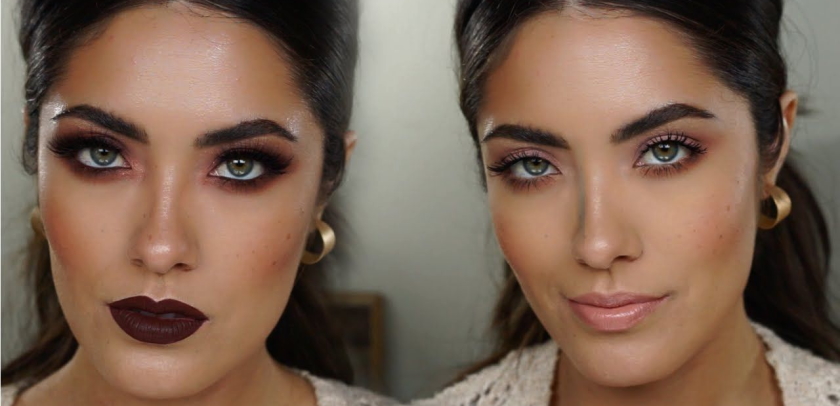Difference Between Daytime Makeup & Night Makeup

For some, the day starts early and ends late. For others, it’s a long period to fill with work, family obligations, and socializing. It can be hard to find time for yourself when you’re busy making sure everyone else is taken care of or simply forcing yourself out into the world at odd hours so that you never miss an opportunity. So how do you go from daytime diva to nighttime goddess? Well, here are some ideas on how to create two perfect looks depending on what your schedule holds.
A lot of women are often confused about the difference between nighttime and daytime makeup. Nighttime makeup is typically applied to enhance features that people may not notice during the day or wear sunglasses, such as eyebrows, lips, and cheekbones. Daytime makeup is usually used to hide imperfections on the skin like dark circles under eyes, scars, spots, etc. The type of makeup also depends on how much time you have before leaving for work or a social event. For example, it’s best not to wear heavy eye shadow if you’re going out at night because it will likely smear off when you touch your face throughout the evening while dancing or drinking alcohol; however, if you don’t plan on connecting yours.

Daytime & night makeup tends
We all have different skin types and tones, so it’s essential to do your research before committing to a full face makeup routine. The most apparent difference between day makeup and night makeup is the color palette. Daytime makeup usually has more of a natural look with subtle colors for daytime wear. At the same time, nighttime glam often consists of bolder colors that can be worn for evening events or after-work cocktails. Here are some tips on what to apply when:
- Day Makeup: Foundation, Concealer, Powder, Blush & Bronzer
- Night Make-Up: Foundation/Concealer (depending on if you need), Eyeshadow Palette (depending on the occasion), Lipstick/Lipgloss, Mascara.

One of the most challenging things about makeup is deciding what to wear during daytime versus nighttime. The main difference between these two looks has to do with color. For a daytime look, you want your skin tone to be highlighted and brighter than it would be for a nighttime look. You also may wish to have less eye shadow or eyeliner on your eyes and more blush on your cheeks to not appear tired throughout the day. On the other hand, a nighttime look is typically darker to create an “invisible” face where only highlights are seen and all imperfections are concealed. While many people find this more accessible because they can just put their makeup on without having any lines of insight, others prefer not to see themselves at all when they’re out late.

